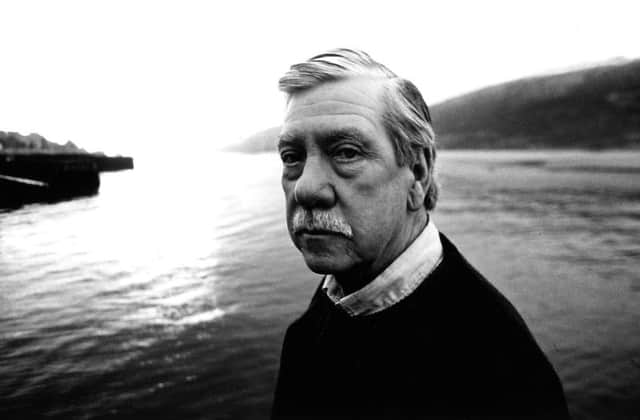Obituary: Derek Cooper, OBE, broadcaster and author


THE Scottish journalist Derek Cooper became a well-known broadcaster on Radio Four and founder and presenter of R4’s Food Programme. The former Scotland on Sunday columnist was also heard on Today, The PM programme and Tomorrow’s World. Cooper remained a fervent Scot and wrote extensively about the Highlands and Islands and retained a life-long passion for Scotch whisky – its traditions and the differing blends. They were all subjects that he had known from his childhood.
His avuncular presence was always reassuring to colleagues in the studio and his devoted audience. There was grace and enthusiasm in everything Cooper did and it was a pleasure to hear his modulated voice over the airwaves. The voice was always clear and incisive: it had an earthy – almost peaty – resonance. One observer commented that his voice was “more comfortable and familiar than custard over a syrup sponge”.
Advertisement
Hide AdAdvertisement
Hide AdHis best-selling book on the Isle of Skye reflects Cooper’s great love of the island. With typical panache he presents a comprehensive picture of the island making it part guide, part gazetteer, part anthology. It was described as “the definitive guide to Skye”.
Derek MacDonald Cooper, although born in London, spent much of his youth on Skye where his mother had been brought up. He attended Portree High School before reading English at Wadham College, Oxford. He saw active service in the Royal Navy during the Second World War and then acted as programme controller at Radio Malaya. In 1960, he returned to the UK and wrote extensively for a variety of journals and was a producer for ITN.
It was in 1966 that Cooper had his first taste of food and wine journalism. He was acting as one of the presenters on the Today programme and did a report on the mediocre standard of food throughout the UK. He caused a few culinary eyebrows to flutter when he said that all visitors to the UK can expect is “ersatz versions of coq au vin or lasagne rather than good, indigenous British food”. He hit more headlines when he wrote the best-selling The Bad Food Guide. One classic account is in a restaurant where Cooper is asked if he wants his claret “chamber-ing”.
The Food Programme started in 1979 and from the outset Cooper focused on the growing, production and consumption of food. His own interest in the subject was immediately transmitted to the audience and there is no doubt that Cooper increased the awareness of good and healthy eating.
He never flinched from the politics of food manufacturing. Cooper hosted programmes from Lebanon and Ethiopia and raised such contentious subjects as how global corporations controlled the international movement of grain. Cooper preferred simple food that was grown or farmed locally – fresh herring was a particular favourite. Two Food Programmes from Scotland were personal for Cooper. In Fife he went truffle hunting and when he found one, Cooper exclaimed: “It’s bigger than a golf ball.” A more serious subject was discussed about feeding a large family in a Glasgow tower block. He pioneered many improvements in the preparation of food and helped Britain appreciate good nutritious produce. Cooper was intelligent, delightfully sceptical and authoritative – but always friendly and informative. The programme was praised by the Prince of Wales as a “national institution”.
Cooper remained in contact with his Scottish roots and maintained a house on Skye, writing about the area with an involved concern – notably in The Road to Mingulay. Other books included The Road to the Isles, The Hebridean Connection and Guide to Scottish Whiskies.
In the 1990s, Cooper wrote regularly on food in Scotland on Sunday. A former colleague, John Forsyth recalls: “His voice was his fortune, but Derek had an individual socialism intertwined with his love of Scotland in general and Skye in particular.”
Cooper was diagnosed with Parkinson’s disease in 1995. Two years later, he was honoured at the Sony Awards for his “pioneering work as one of the first journalists to take the subject of food seriously”. In 2001, he was made an OBE and was twice awarded the Glenfiddichh Trophy as Food Writer of the year. In 1999 he was awarded an honorary degree from Queen Margaret University, Edinburgh. In 2010, Cooper donated his library of books, memorabilia and awards to the Islands Book Trust at the Ravenspoint Centre on the Isle of Lewis.
Advertisement
Hide AdAdvertisement
Hide AdNothing demonstrates his love of whisky and words more than a piece he wrote about the whisky distilled on his beloved Skye. “Talisker is not a drink, it is an interior explosion, distilled central heating; it depth charges the parts, bangs doors and slams windows.”
Cooper married Janet Feaster in 1953. She and a son and daughter survive him.